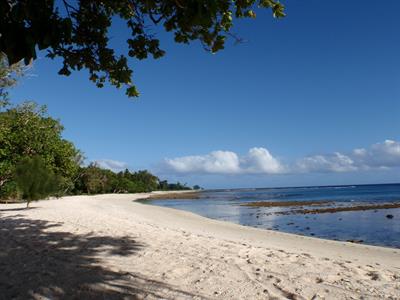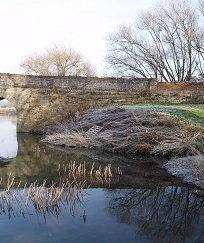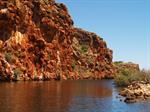
DISCOVER HOW TO TAKE POWERFUL LANDSCAPE PHOTOGRAPHS
Capturing a dramatic landscape takes a lot of technique and skill.
Almost everyone at some point has taken a photograph and been surprised when the picture doesn't look nearly as dramatic as the landscape did in reality. This course will explain how to capture what you experience in the moment and transport that same 'feel' into your images.
WHAT THE COURSE COVERS
You will learn a wide variety of things, through a combination of reading, interacting with tutors, undertaking research and practical tasks, and watching videos. Here are just some of the things you will be doing:
- Basics of photography.
- Starting a resource file.
- Principles of landscape photography.
- Selecting the right equipment and materials.
- Using filters.
- Dealing with a range of problems found in natural areas, including uneven light, shade, glare, etc.
- Photographing buildings and streetscapes.
- The characteristics of water and its effect on photography.
- Selecting and composing a photograph to create the predetermined effect.
- Create a folio of landscape photographs.
Lesson Structure
There are 8 lessons in this course:
- Introduction
- Different Approaches ... realistic, impressionistic, abstract
- Understanding the landscape (components, change)
- Lighting (Shooting into the sun, time of day, weather)
- Using Filters (Polarising, ultra violet, red, orange, yellow)
- Snapshots
- Equipment
- Camera settings (Shutter speed, aperture,)
- Introducing Digital Technology
- CCD’s
- Resources
- The Main Principles
- Open view scenes
- Closed view scenes
- Rule of thirds
- Unity
- Balance
- Proportion
- Harmony
- Contrast
- Rhythm
- Line
- Form
- Mass
- Space
- Texture
- Colour
- Patterns
- Tone
- Other compositional components
- Camera Techniques
- Movement
- Depth of field
- Angles
- Framing the landscape
-
 Creating Different Effects
Creating Different Effects
- Landscape effects
- Sunrise and Sunset
- Weather effects
- Haze
- Mist
- Rain and Rainbows
- Storms
- Exposures for landscapes
- Sun
- Clouds
- Creating intense colour
- Creating different effects
- Scenic Photography
- Digital filter effects (Coloured pencil, fresco, sponge, blur, etc)
- Hue/Saturation
- Digital toning
- Photographing Natural Areas
- Locations (Arid desert, Arctic ice flows, volcanic peaks, tropical rain forests, etc)
- Grasslands
- Forest
- Mountains
- Rural areas
- Tropical Rain forest
- Desert
- Wetlands
- Snow photography
- Coastal photography
- Photographing plants
- Compositional elements
- Lenses
- Shooting in bad weather
- Extreme temperature
- Extreme Cold
- Extreme heat and humidity
- Photographing Streetscapes
- Modern buildings
- Historic buildings
- Viewpoints and perspective
- Equipment
- Photographing architecture at night
- Mirrors and reflections
- Exposure readings
- Converging lines
- Tips for architectural photos
- Tips for street photography
- Photographing Water
- Water characteristics
- Reflections
- Exposures
- Creating effects with water
- Water in motion
- Freezing movement
- Achieving a soft artistic effect
- Droplets
- Using filters with water
- No tripod
- Seascapes
- Underwater photography
- Exposures
- Developing Your Photographic Style
- Styles and work of famous photographers (Ansel Adams, Paul Caponigro, Thomas Joshua Cooper, John Davies , David Doubilet, Carleton E Watkins, etc)
- Developing a photo style
- Hints on style
- Photographing detail
- Atmosphere
- Trip or Photographer Themes
- Know your equipment
- Computer Techniques (Levels, Channel extraction, Channel mixer, Duotones, Hand tinting, Panoramas)
- Major Project
- Uses for Photography
- Using your work to get a job
- Photojournalism
- Freelancing
- Publishing
- Form of photo
- Creating a website
- Creating works of art
- Framing
- Creating a Folio (In this lesson, you create either a photo essay or a folio as a major project)
Each lesson culminates in an assignment which is submitted to the school, marked by the school's tutors and returned to you with any relevant suggestions, comments, and if necessary, extra reading.
 Aims
Aims
- Discuss the nature and scope of photographing landscapes.
- Develop a firm understanding of how you can work at improving your capabilities with respect to taking landscape photographs.
- Develop a framework, upon which you will base your work in future lessons.
- Increase the variety of effects which you are able to create when photographing landscapes.
- Develop your capacity to take better photographs of natural areas.
- Develop your capacity to take better photographs of buildings and streetscapes
- Develop your capacity to take better photographs of water landscapes.
- Develop your flexibility of being able to capture landscape images in different photographic styles.
- Develop a folio of quality landscape photographs
Get started anytime to suit you and start creating exceptional landscape photos.